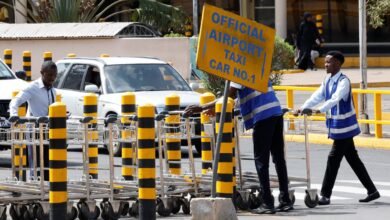
Libya’s embattled central bank governor clung on against attempts to oust him, deepening a more than week-long standoff between rival factions over control of the fractured OPEC nation’s vast oil revenue.
Sadiq Al-Kabir, whom authorities in the capital, Tripoli, in the country’s west are trying to replace, on Sunday filed a complaint with Libya’s attorney general in what appeared a last-ditch bid to stop the storming of the regulator’s headquarters, local media reported.
The central bank has become the latest venue for control of the North African nation, which has been wracked by unrest since the 2011 NATO-backed uprising against long-time ruler Moammar Al Qaddafi and is split between dueling governments in the east and west.
Relations between Al-Kabir and Tripoli-based Prime Minister Abdul Hamid Dbeibah have steadily worsened over the past year, culminating in the August 18, 2024 order to replace the central banker amid accusations over his mishandling of funds.
Al-Kabir says the move is illegitimate. And his support from factions in Libya’s east has ratcheted up tensions between the competing administrations, imperiling a United Nations-brokered 2020 deal intended to reunite a war-torn country that’s home to Africa’s largest oil reserves.
A government delegation on Sunday tried to enter the bank’s Tripoli offices to install a new management board but was blocked by security staff, Libyan media, including the Al Marsad news agency, said.
Libyan banks said the regulator’s suspension of operations has affected services including foreign-currency purchases and money transfers.





